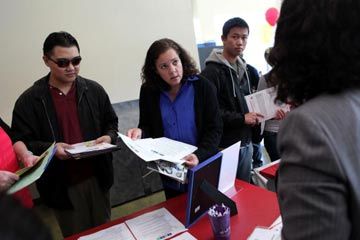Gaining admission to medical school can be quite challenging, and once you get in, it will likely entail four years of blood, sweat and tears. Wouldn't you prefer to do it in the Caribbean or some other exotic locale? These days, more American students are heading overseas for medical school.
What's not to love about white sandy beaches, palm trees and year-round warm weather? The benefits of getting an education abroad aren't limited to the dreamy destination, though. Some students from the United States choose to go through rigorous physician training offshore to get the experience of learning how to practice medicine in an international environment. Students gain cultural understanding that will help them in their careers, no matter where they decide to practice. They also develop a knack for being resourceful, agile and creative by serving in clinics where supplies and equipment may be limited or nonexistent. Another advantage is getting first-hand experience treating new diseases that they might rarely see in medical schools in the United States. American students who opt for medical school overseas also say they get hands-on experience with other practical skills, such as interviewing patients and documenting the medical history of those to whom they give care.
Advertisement
Yet, there are arguably more reasons why American students venture off to medical school abroad. Some people suggest that it's easier to gain admission at an offshore medical school than those in the United States. Not all overseas medical schools require high MCAT (Medical College Admissions Test) scores -- or any MCAT scores at all. Additionally, there are medical schools in Europe that accept students who only have a high-school diploma, albeit these are six-year degree programs. Money is another factor. Students can get their education at certain medical schools overseas for a much lower cost. Then, there's the fact that nontraditional candidates (such as those who may be leaving a military service or making a mid-life career change) have a better shot at being accepted into these schools. Medical schools in the United States may not accept these applicants because they're older or they have poor test scores.
So, if you're ready to leave your retail sales job and embark on an exciting medical education in the Caribbean, reign in that enthusiasm for now. On the next page, we'll explore some of the drawbacks to overseas medical schools.
Advertisement


